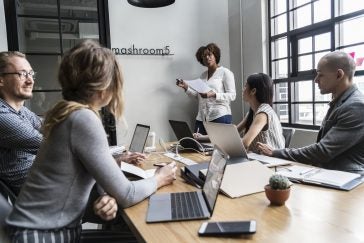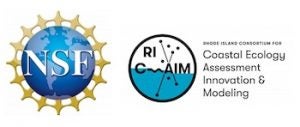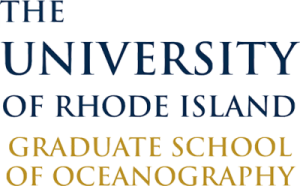2021 CDP Summer Intensive: Professional Skills for Researchers
on Zoom
July 22-23, 2021
 The ability to engage various audiences in conversations about STEM, generally, and your research, specifically, is essential to career success. These audiences range from potential funders and scientific collaborators to journalists and community members, and each audience has different interests, priorities, and perspectives.
The ability to engage various audiences in conversations about STEM, generally, and your research, specifically, is essential to career success. These audiences range from potential funders and scientific collaborators to journalists and community members, and each audience has different interests, priorities, and perspectives.
What are the most effective science communication tools to meet the priorities of a given audience? How can you apply inclusive science communication practices in data visualization, on social media platforms like Twitter and Instagram, and in short videos? Do you have the insight and understanding to create an inclusive and equitable workplace, regardless of your audience?
Metcalf Institute offered a two-day online professional development workshop, July 22-23, to introduce participants to a variety of science communication tools and strategies in the 2021 CDP Summer Intensive, supported by the Rhode Island Consortium for Coastal Ecology Assessment, Innovation, & Modeling (RI C-AIM) and the URI Graduate School of Oceanography.
The program is open to Rhode Island’s senior level undergraduates, graduate students and post-doctoral scholars in STEM fields. Attendance at the Summer Intensive sessions satisfies CDP Certificate requirements or electives as noted below.
Agenda
Participants may choose to register for all CDP Summer Intensive sessions or for particular individual sessions. Click below to register.
Thursday, July 22
10:00 – 11:30 a.m. Eastern
Practical Tools for Inclusive Research and Workplace Environments
Dr. Chloe Poston, Dartmouth University
(Attendance at this session satisfies a CDP Certificate requirement credit.)
The past 18 months have led to the reemergence of diversity, equity and inclusion as buzz words in every domain. In this session, Poston will define these terms and discuss the historical context for the moment in which we find ourselves as students, researchers, and future employees. During the workshop, participants will move beyond theory to learn practical tools to create working environments that are inclusive by advocating for themselves and peers, championing equity, and learning how to influence change from any level of an organization. Come with an open mind and a willingness to actively participate in small group discussions.
12:30 – 2:00 p.m. Eastern
Harnessing Social Media for Science Communication
Christine Liu, University of California Berkeley and Two Photon Art
(Attendance at this session satisfies a CDP Certificate elective credit.)
Social media is a powerful tool that connects individuals around the globe, allowing the rapid dissemination of information and misinformation as well as engagement. In this workshop, we’ll consider the advantages and features of different platforms to identify tools that are compatible with your personal goals for science communication. Whether you already have a specific goal or just a vague idea, this workshop will help refine possible methods for sharing science with public audiences, using analytics to fine-tune your approach, and learning how to express yourself along with sharing factual information.
Friday, July 23
9:30 – 11 a.m. Eastern
Data Visualization for Public Audiences: A Panel Discussion
Talya ten Brink, NOAA
Michael Starobin, NASA
Jonathan Schwabish, Urban Institute
(Attendance at this session satisfies a CDP Certificate elective credit.)
Researchers often view data visualization through a narrow lens that is suited only to other researchers. But how should we approach data visualization for public audiences? This panel will feature three speakers who use different tools and strategies for communicating data in visual formats, followed by a discussion with attendees. This session is designed to provide inspiration and new ideas for your visualization efforts, to help you communicate effectively with diverse audiences.
Applying Racial Equity Awareness in Data Visualization
How can analysts, researchers, and developers apply a race- and ethnicity-conscious lens to their data analysis and data visualization work? How can we take a more diverse, equitable, and inclusive (DEI) perspective to our research, data, and visualizations? Just as we carefully consider our written words, we should be equally careful in how we visually present data to our readers, users, and audiences, including the words we use in and around those visuals. Taking a DEI perspective means considering how the specific lived experiences and perspectives of the people and communities we are studying, as well as our readers, will perceive information and carry that information forward. As part of this panel discussion, Jonathan Schwabish, Urban Institute, will discuss a variety of techniques that data visualization producers should consider when creating visuals with this DEI approach.
12 – 3 p.m. Eastern
Immersive Visual Storytelling Strategies and Techniques
Sonia Narang, Independent multimedia journalist and Metcalf Institute alumna
This session is co-sponsored by the URI Graduate School of Oceanography.
(Attendance at this entire session satisfies a CDP Certificate elective credit.)
12:00-1:00 p.m.
Immersive Storytelling Strategies and Techniques for Science Communication
Enjoy your lunch as multimedia journalist Sonia Narang describes immersive storytelling techniques – including 360o video, Instagram Reels, and other popular short-format videos – for science communication. You’ll learn how to capture video footage in simple, effective ways, and visually present your research in an engaging and creative manner. Walk away with a set of tools to make your scientific research accessible to a diverse audience and share your joy of science through video.
1:00-1:15 p.m.
Break
1:15-3:00 p.m.
Get Creative! Put Your Video Techniques to Use
Note: Workshop limited to 20 participants with a waitlist
In this interactive session, take a deeper dive into using video to translate your science work into meaningful stories for public audiences. Learn techniques for using your smartphone to film and edit shareable videos for a variety of platforms, including Instagram Reels, Twitter, and Facebook. Then, work in interdisciplinary teams to develop real-life ideas for video stories that take audiences inside your lab and into the field. Participants will experiment with creating new ideas to tell compelling science stories about critical topics such as climate change.
This work is supported by the National Science Foundation under EPSCoR Cooperative Agreement #OIA-1655221. Any opinions, findings, and conclusions or recommendations expressed in this material are those of the author(s) and do not necessarily reflect the views of the National Science Foundation.


